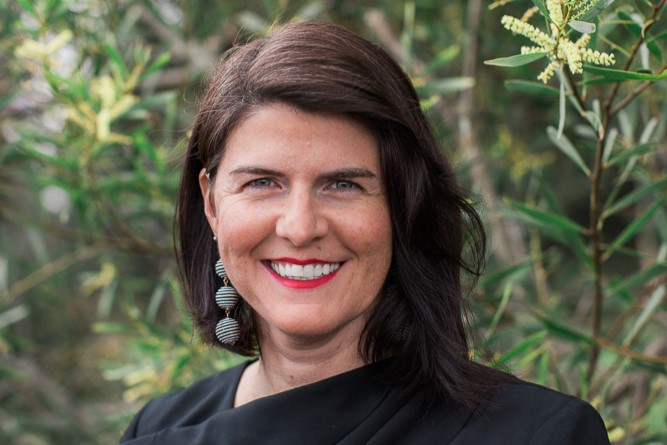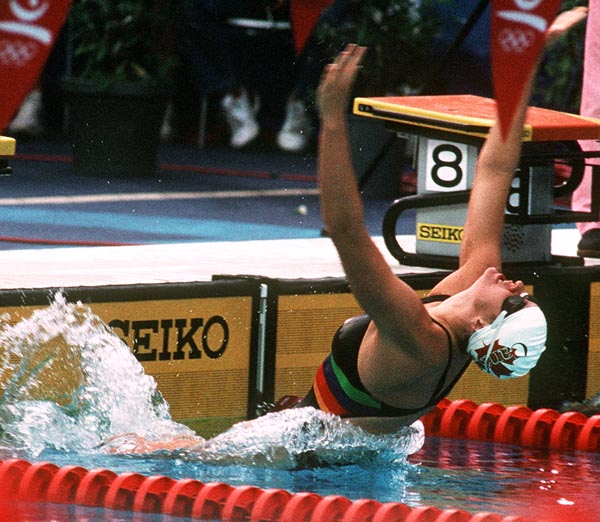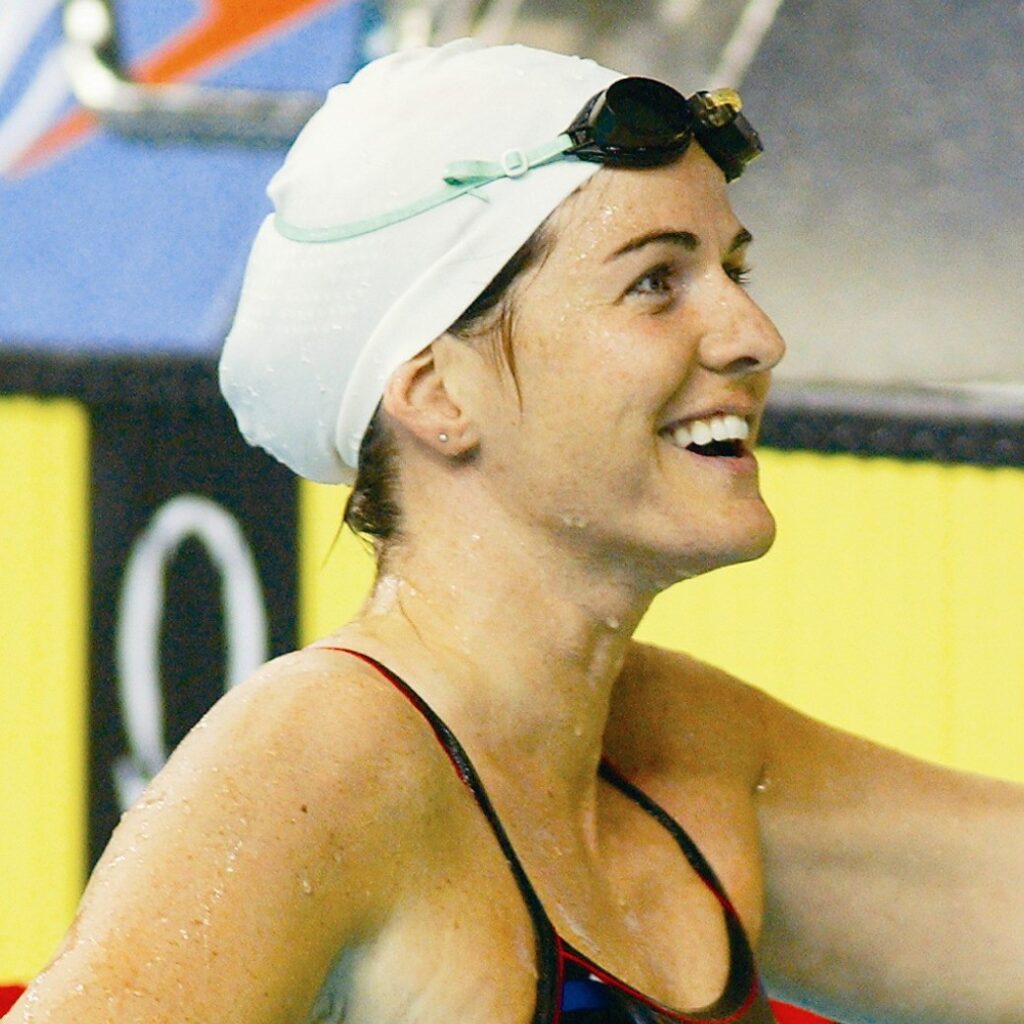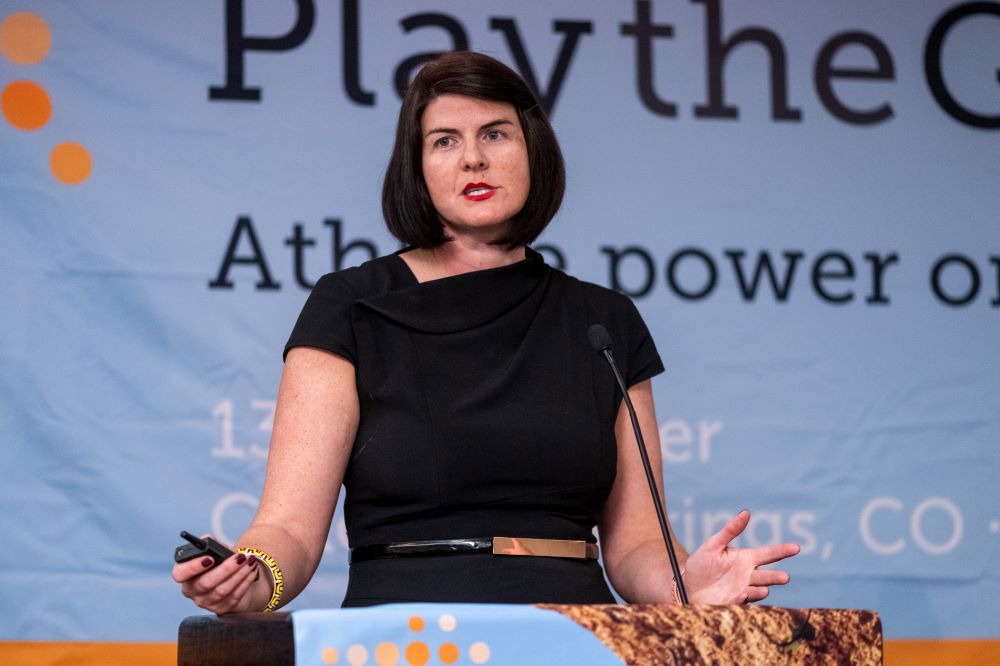Olympic swimmer turned lawyer protects athletes from abuse: “If you cannot find the joy, then you won’t find success.”
Nikki Dryden
Athlete and Lawyer
Fulbright Global Scholar to Canada and the United Kingdom

Nikki Dryden swam in her first Olympics as a 17-year-old, representing Team Canada in five swimming events at the 1992 Barcelona Games. As a student-athlete at University of Florida, she was a five-time Southeastern Conference (SEC) champion and received nine All-American honors. After transferring to Brown University to study international relations, she continued to compete, adding five Ivy League titles to her accolades. Dryden’s career as a swimmer includes medals in the Commonwealth and Pan Am Games, and swimming in two consecutive Olympic Games.
Her experience as an elite competitor reinforced her love of sports, but also motivated her to correct the problems she and other athletes faced. As a high schooler, she had a coach who wielded “control and abuse of power” which was “detrimental to my performance and my long-term development,” she relates. In college, her coaches prioritized her personal growth and “put [her] development as a human first.” This translated into better performance. Reflecting on her Olympic experiences, Dryden says of the 1992 Barcelona Games under her old coaches, she was overly focused on outcomes, but during the 1996 Atlanta Olympics with more supportive coaching, she immersed herself more fully into the experience by marching in the Opening Ceremonies and watching the other sports. Dryden now advocates for a culture that is “athlete-centered, respectful and inclusive.” Watching the Paris Olympics with her child, Dryden focuses on the athletes who are very clearly enjoying the process, observing, “If you cannot find the joy, then you won’t find success.”


After retiring from competitive swimming, Dryden became a sports journalist and began to support women in positions of leadership such as coaches, sports administrators, and members of the International Olympic Committee. She also had a variety of international experiences as a citizen of Canada, the United States, and Australia, serving as a visa officer for the Australian High Commission in Sri Lanka and Kenya. She eventually became a lawyer practicing in New York City.
From 2022-2023, Dryden conducted professional research as a Fulbright Global Scholar to Canada and the United Kingdom. She worked with Sport Resolutions UK and the Sport Dispute Resolution Centre of Canada to examine how sport disputes get resolved in cases where there is “any sporting matter that infringes upon or violates the athlete’s fundamental human right” for instance, sex discrimination, restrictions of freedom of speech or expression, labor rights, and abuse cases. Dryden says that “Fulbright was important to understanding how domestic and alternative sport tribunals are managing sport and human rights cases. This is in comparison to the Court of Arbitration for Sport (CAS) based in Switzerland, to which all Olympic athletes are obliged to use as the ultimate decider of sport disputes. However, the CAS was not set up to hear human rights cases, but anti-doping or other disciplinary matters where the athlete is centered as the perpetrator of the offense.”
One of the key findings of her Fulbright research was that domestic tribunals “had more transparency, athlete engagement, and athlete support services (including access to legal advice)” as compared with international systems.
Dryden credits her Fulbright experience with empowering her to “clearly articulate the changes needed in the global sport dispute system when it comes to athlete human rights, with a focus on creating legitimate, trusted and effective sport dispute resolution at domestic levels.”

Currently based in Australia, Dryden continues to consult on legal issues in sports, focusing on athlete rights, discrimination against women, sex abuse, and corruption in sporting organizations. She founded a non-profit organization, Lex Athleta, to do pro-bono legal work in the field. Most recently, she worked with the Australian Human Rights Institute and served as an advisor to Sport Integrity Australia.
Dryden has collaborated with global coalitions on several high-profile initiatives. She has successfully advocated for the International Olympic Committee to update their Charter rules on the rights to freedom of expression and due process. She has also served as an athlete ambassador for Right to Play, a humanitarian group that helps children from societies in conflict to rebuild their lives through sport. Through her unwavering dedication, Nikki Dryden continues to champion the rights of athletes worldwide.
Fulbright Global Scholar Award.
The Fulbright Global Scholar Award enables U.S. scholars and professionals to engage in collaborative research, combine teaching and research activities, or pursue a professional project in their area of specialization in two to three countries in different world regions. Activities may also include consulting on curriculum, program and faculty development and conducting workshops. The activities may consist of one multi-country trip, or two or three single or dual-country trips.